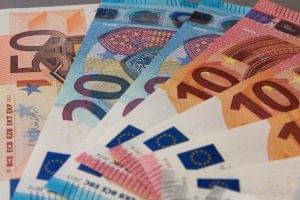The EU carbon tax may arrive soon
The European Union is expected to introduce a carbon tax aimed at improving sustainability and competitiveness at the beginning of next year – draws attention to EY. The levy would be charged on products with carbon dioxide content imported from outside the EU market. During the transition, the affected businesses must also prepare for an increase in procurement costs and administrative burdens.

(Photo: Pixabay)
The carbon tax (CBAM) mechanism announced last year by the EU helps to reduce harmful emissions. The purpose of the measure is also to offset the competitive advantage of products produced in a cheaper but more environmentally polluting way in EU countries, including Hungary. The tax would be introduced from January 1, 2023, on imported products from the most polluting industries, such as cement, steel, iron, fertilizers, aluminum, as well as plastic products and some chemicals.
“For importers, the introduction of CBAM may initially lead to an increase in administration, but at the same time, domestic manufacturers may be in a better position in the common market compared to products coming from outside the EU. Since goods from third countries are classified as carbon-intensive products compared to EU production standards, most traders have to reckon with rising costs,” said László Druskóczi, head of the trade policy group at the Permanent Representation of Hungary to the European Union, in the EY podcast.
“The weight of the decision is reflected in the fact that we already have a customer who, among other things, can build his next factory in the EU and not outside the EU, because paying the carbon tax would be a large additional burden for him,” Nikolett Nánási added. EY customs consulting manager.
The mechanism has not yet taken its final form, so the introduction on January 1, 2023 may be postponed
The farmers should start preparing for the changes expected in the first half of next year. According to the draft, administrative and payment defaults committed after the transition period may result not only in heavy fines, but also in the confiscation of the goods or the revocation of the CBAM declarant’s permit entitling the import of the affected products.
“Companies need to see what administrative and reporting obligations will arise with the introduction of the carbon tax, so that they can prepare for the transition. With the involvement of experienced external experts, businesses can quantify how much payment obligations the mechanism entails for them. In addition, the examination of the structure of the supply chain, the reorganization of production, and the initiation of possible technological developments may also arise, in order to reduce the financial and administrative burdens of those involved,” emphasized Nikolett Nánási, EY’s customs consulting manager.
Related news
CBAM causes market disruption
🎧 Hallgasd a cikket: Lejátszás Szünet Folytatás Leállítás Nyelv: Auto…
Read more >Fashion, drones and sustainability – the new face of agriculture at the AgriTech InnoExpo event
🎧 Hallgasd a cikket: Lejátszás Szünet Folytatás Leállítás Nyelv: Auto…
Read more >European Court of Auditors: EU Commission proposals affecting the common agricultural policy may cause uncertainty
🎧 Hallgasd a cikket: Lejátszás Szünet Folytatás Leállítás Nyelv: Auto…
Read more >Related news
Nestlé to sell remaining ice-cream assets but commits to Froneri venture
🎧 Hallgasd a cikket: Lejátszás Szünet Folytatás Leállítás Nyelv: Auto…
Read more >








